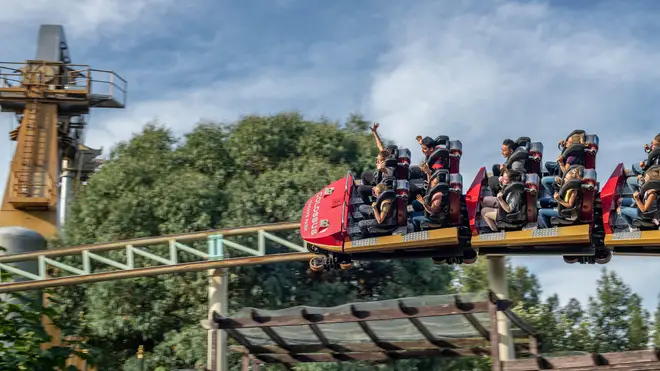
James O'Brien 10am - 1pm
11 October 2022, 18:18 | Updated: 11 October 2022, 18:23

The iPhone 14's new crash detection feature has been calling emergency services after mistaking the sharp movement of rollercoasters for car accidents.
Apple's latest smartphone features motion sensors which are triggered by sudden changes in speed or direction - prompting the device to call 999.
The phone will display an alert and call emergency services after 20 seconds, in case the user is unconscious our can't reach their device.
But the safety feature appears to be confused by the twists and turns of being on a rollercoaster and is calling first responders from people's pockets.
Theme park blog Coaster 101 said signs have been put up in Dollywood, Tennessee, saying: “Cell phones and other devices should not be brought aboard any attraction.
“Due to the dynamic movement you will experience on this ride, Apple Watches and similar devices may activate their emergency call function.
To prevent your device making unintended 911 calls, please turn it off or enable airplane mode”.
Since the iPhone 14 went on sale, the 911 dispatch center near Kings Island amusement park has received at least six phones calls saying:
— Joanna Stern (@JoannaStern) October 9, 2022
“The owner of this iPhone was in a severe car crash...”
Except, the owner was just on a roller coaster.
🆕 by me: https://t.co/hp1fHZBIf6 pic.twitter.com/i0lZPoWzGz
At least six false alarms related to people on rollercoasters have been recorded from Cincinnati's Kings Island amusement park, the Wall Street Journal reports.
One recording features the iPhone's automated message with the whooshing sound of a rollercoaster and people's screams in the background.
The feature is included in the iPhone 14, and the Watch Series 8, SE and Ultra. An Apple spokesman told WSJ its algorithms are “extremely accurate in detecting severe crashes”.
They said they have been validated with more than a million hours of crash-test data, adding that the technology would keep improving over time.